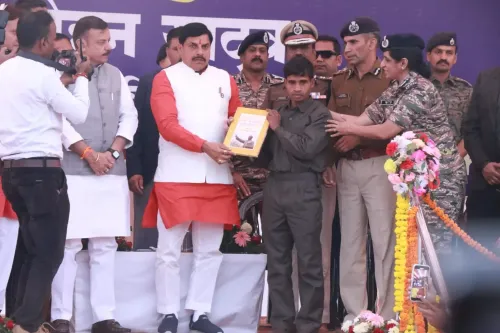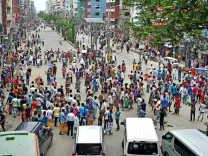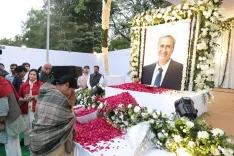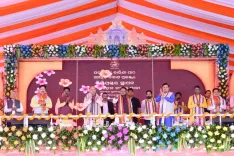Why Did the Supreme Court Reject the PIL for a Pahalgam Attack Probe?
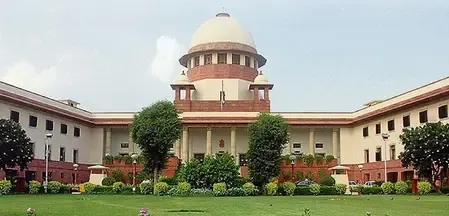
Synopsis
Key Takeaways
- The Supreme Court rejected a plea for a probe into the Pahalgam attack.
- Justice Surya Kant emphasized the importance of national unity against terrorism.
- The court discouraged frivolous petitions that could undermine security forces.
- The petitioner was permitted to withdraw the PIL.
- The NIA is leading the investigation into the terror attack.
New Delhi, May 1 (NationPress) The Supreme Court on Thursday refused to consider a petition aimed at establishing a probe committee led by a retired Supreme Court judge to investigate the tragic April 22 terror attack in Jammu and Kashmir’s Pahalgam, which resulted in the deaths of 26 civilians.
A bench led by Justice Surya Kant expressed strong disapproval towards the petitioner for bringing such a request before the highest court.
“Exercise caution before submitting a PIL like this. Since when have retired judges from High Courts or the Supreme Court become experts in criminal investigations? Since when have we (judges) acquired investigative expertise? Our role is to resolve disputes. Please refrain from making these requests (for an investigation supervised by a retired SC judge),” stated the Bench, which included Justice N.K. Singh.
It further emphasized, “This is a critical time when every citizen of the nation has united to combat terrorism. Do not make requests that could undermine our forces. We find this unacceptable! Consider the sensitivity of the matter.”
Noticing the court's reluctance to entertain the plea regarding the terrorist act, the petitioner unexpectedly shifted focus to the issue of Jammu and Kashmir students studying outside the union territory, expressing a desire to retract other requests within the petition.
In response, the Supreme Court remarked, “We won’t acknowledge anything. Please go wherever you wish. Do not request us to issue an order! Are you certain about the request you made in the petition? You compel us to review all these documents late at night, and then you forget what you asked for!”
Nonetheless, the Justice Kant-led Bench advised that the inquiry concerning J&K students studying outside the union territory could be pursued before the relevant High Court.
In the end, the Supreme Court permitted the petitioner to withdraw the PIL while allowing the option to approach the appropriate High Court regarding the students’ matters (if necessary).
The PIL, filed following the devastating terrorist strike in Pahalgam, sought directives aimed at the Centre, Jammu and Kashmir Union Territory administration, CRPF, NIA, and other authorities to devise an action plan to safeguard citizens in the valley's tourist regions.
Additionally, the petition called for the Union government to constitute a Special Investigation Team (SIT) to ensure accountability for the terror attack.
Meanwhile, the Director General (DG) of the National Investigation Agency (NIA) arrived in Pahalgam on Thursday after the anti-terror agency assumed control of the investigation, following a directive from the Counter Terrorism and Counter Radicalisation (CTCR) division of the Union Ministry of Home Affairs (MHA).



